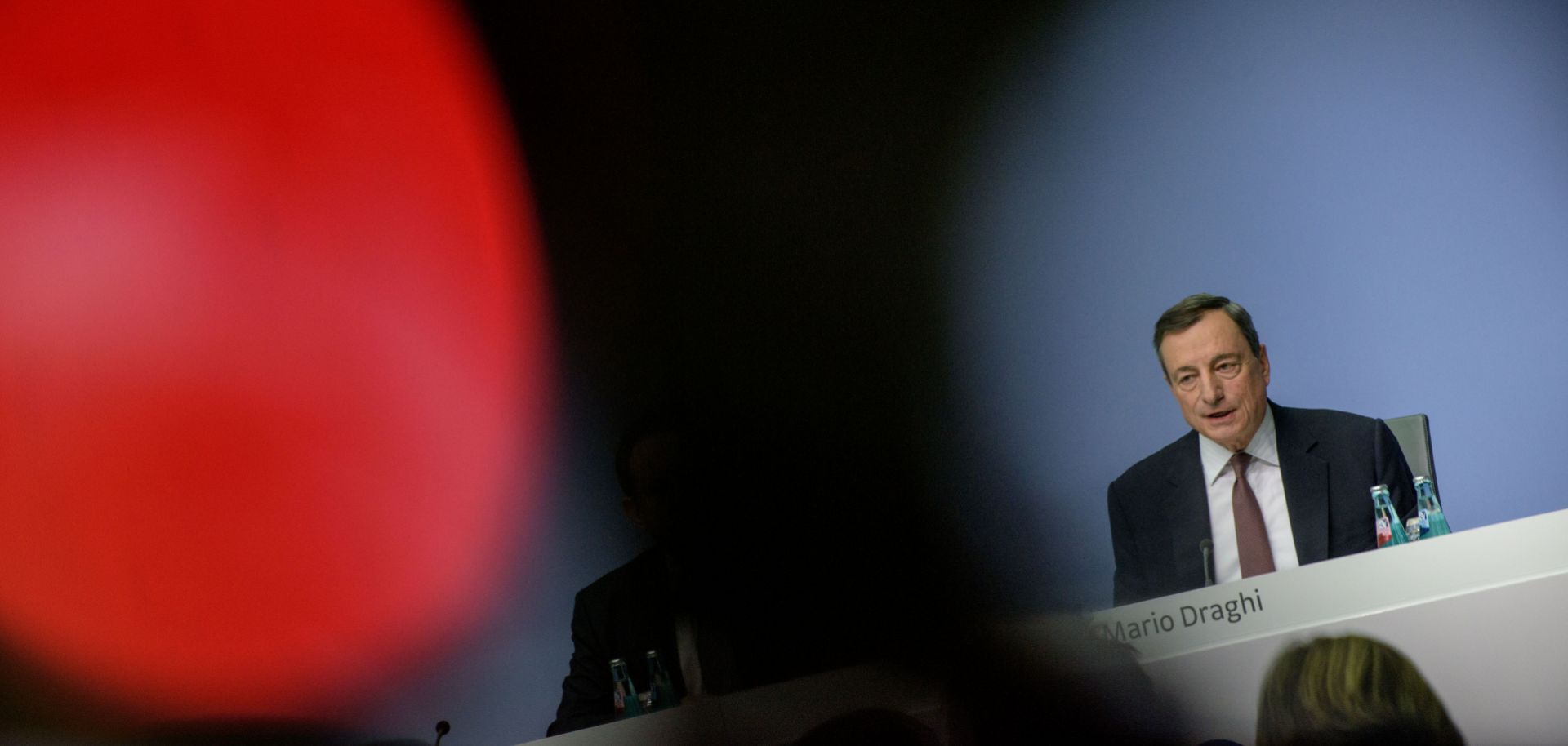ASSESSMENTS
Dim Chances for a European Banking Union Breakthrough
Dec 27, 2017 | 19:53 GMT

Mario Draghi, president of the European Central Bank, speaks to the media following a meeting of the ECB Governing Council on December 14, 2017, in Frankfurt, Germany. Today's was the last meeting of the year and comes on the heels of new economic data that show a strong and ongoing recovery for the eurozone, with 2.6 percent growth in the third quarter of 2017. (Editors Note: The picture has been taken with a TV camera in front.)
(Thomas Lohnes/Getty Images)
Highlights
- Negotiations over the future of the European Union in 2018 will include talks on completing a banking union, which would first require the creation of a blocwide deposit insurance system.
- The deposit insurance scheme faces strong German and Dutch opposition based on their reluctance to share risk with Southern European banks, which they view as too fragile.
- Proposals to address the issues of nonperforming loans and sovereign debt exposure may not be enough assuage the Northern European concerns.
Subscribe Now
SubscribeAlready have an account?
